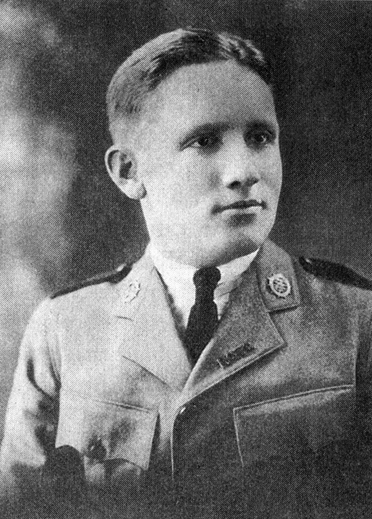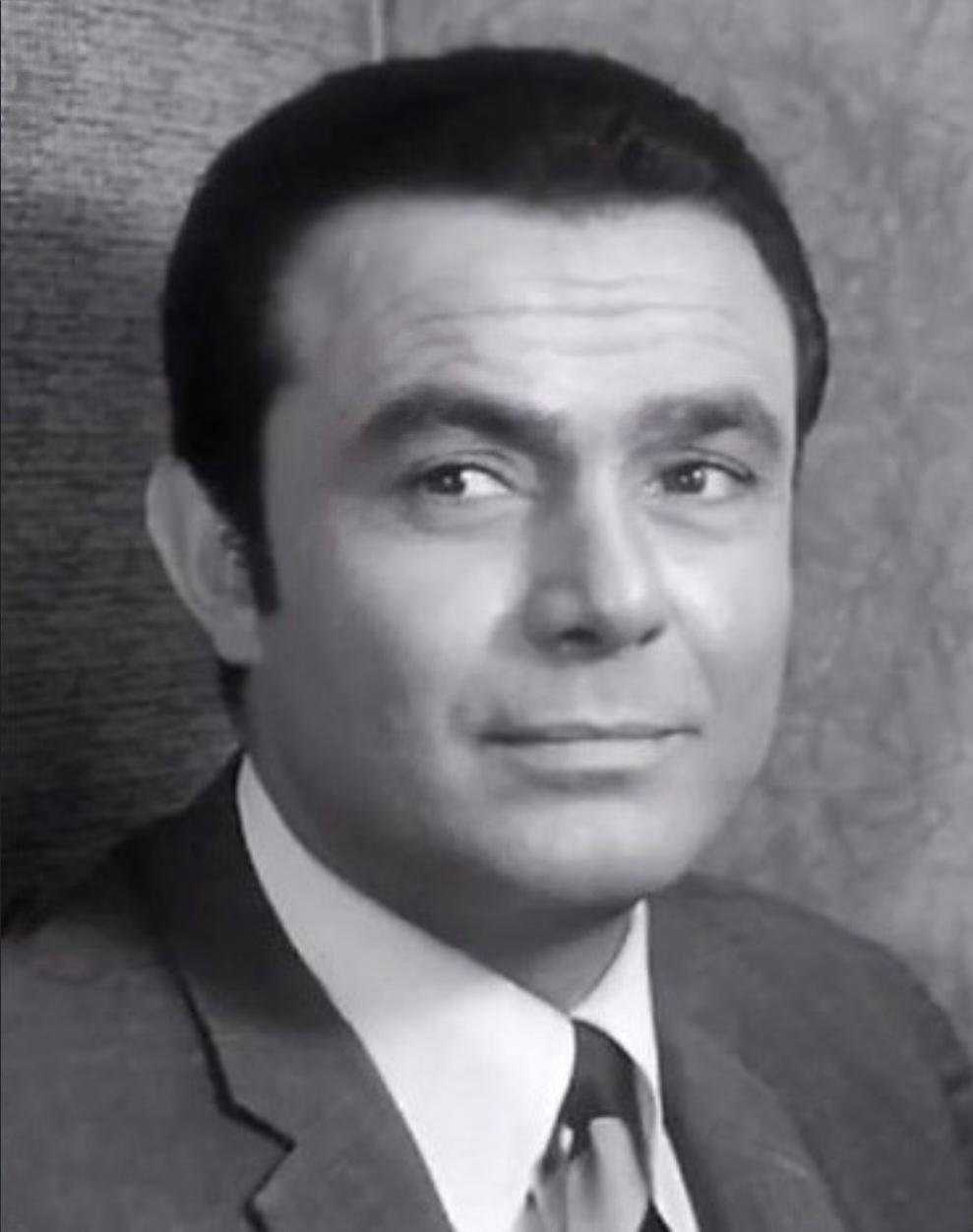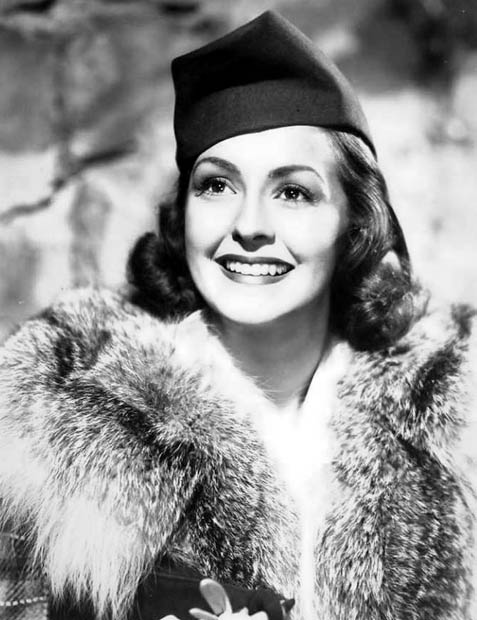|
Jack Kelly (actor)
John Augustus Kelly Jr. (September 16, 1927 – November 7, 1992), known professionally as Jack Kelly, was an American film and television actor most noted for the role of Bart Maverick in the television series ''Maverick'', which ran on ABC from 1957 to 1962. Kelly shared the series, rotating as the lead from week to week, first with James Garner as Bret Maverick (1957–1960) then with Roger Moore as Beau Maverick (1960–1961) and Robert Colbert as Brent Maverick (1961, for two episodes), before becoming the only Maverick (alternating with reruns from the Garner era) in the fifth season. Kelly later became a politician, having served from 1983 to 1986 as the mayor of Huntington Beach, California. Early life John Augustus Kelly Jr. was born in Astoria, Queens, New York, one of four children, to Ann Mary (née Walsh) and John Augustus Kelly Sr. "Jackie", as he was called as a child, came from a prominent theatrical family. His mother, Ann "Nan" Kelly, had been a ... [...More Info...] [...Related Items...] OR: [Wikipedia] [Google] [Baidu] |
Astoria, Queens, New York
Astoria is a neighborhood in the western portion of the New York City Boroughs of New York City, borough of Queens. Astoria is bounded by the East River and is adjacent to three other Queens neighborhoods: Long Island City, Queens, Long Island City to the southwest, Sunnyside, Queens, Sunnyside to the southeast, and Woodside, Queens, Woodside to the east. , Astoria has an estimated population of 95,446. The area was originally called Hallet's (or Hallett's) Cove after its first landowner William Hallet, who settled there in 1652 with his wife, Elizabeth Fones. Hallet's Cove was incorporated on April 12, 1839, and was later renamed for John Jacob Astor, then the wealthiest man in the United States, in order to persuade him to invest in the area. During the second half of the 19th century, economic and commercial growth brought increased immigration. Astoria and several other surrounding villages were incorporated into Long Island City in 1870, which in turn was incorporated into ... [...More Info...] [...Related Items...] OR: [Wikipedia] [Google] [Baidu] |
United Media
United Media was a large Column (periodical), editorial column and comic strip newspaper print syndication, syndication service based in the United States, owned by the E. W. Scripps Company, that operated from 1978 to 2011. It syndicated 150 comics and editorial columns worldwide. Its core businesses were the United Feature Syndicate and the Newspaper Enterprise Association. History E. W. Scripps started his newspaper career in the 1885, and owned 22 newspapers by 1910. In 1897, he created two companies, the Scripps-McRae Press Association and the Scripps News Association. In 1907, he combined a number of news providers into United Press Associations as a rival to Associated Press. On June 2, 1902, the new Newspaper Enterprise Association (NEA), based in Cleveland, Ohio, started as a news report service for different Scripps-owned newspapers. It started selling content to non-Scripps owned newspapers in 1907, and by 1909, it became a more general syndicate, offering comics, pictu ... [...More Info...] [...Related Items...] OR: [Wikipedia] [Google] [Baidu] |
The Story Of Alexander Graham Bell
''The Story of Alexander Graham Bell'' is a somewhat fictionalized 1939 biographical film of the famous inventor. It was filmed in black-and-white and released by Twentieth Century-Fox. The film stars Don Ameche as Bell and Loretta Young as Mabel, his wife, who contracted scarlet fever at an early age and became deaf. The first half of the film concentrates on the hero's romantic, financial, and scientific struggle. Henry Fonda is notable in a supporting role as Mr. Watson who hears the first words ever spoken over the telephone. In a pivotal scene, Bell (Don Ameche), while working on the telephone, accidentally spills acid onto his lap and shouts in pain, “Mr. Watson, come here! I want you!”. Watson, barely able to contain his own excitement, rushes into the room and stammers out the news that he heard Bell calling out to him over the telephone receiver. Bell has Watson repeat his own words to him to confirm it, and the two men begin hopping around the room, with Wat ... [...More Info...] [...Related Items...] OR: [Wikipedia] [Google] [Baidu] |
Biopic
A biographical film or biopic () is a film that dramatizes the life of a non-fictional or historically-based person or people. Such films show the life of a historical person and the central character's real name is used. They differ from docudrama films and historical drama films in that they attempt to comprehensively tell a single person's life story or at least the most historically important years of their lives. Context Biopic scholars include George F. Custen of the College of Staten Island and Dennis P. Bingham of Indiana University – Purdue University Indianapolis. Custen, in ''Bio/Pics: How Hollywood Constructed Public History'' (1992), regards the genre as having died with the Hollywood studio era, and in particular, Darryl F. Zanuck. On the other hand, Bingham's 2010 study ''Whose Lives Are They Anyway? The Biopic as Contemporary Film Genre'' shows how it perpetuates as a codified genre using many of the same tropes used in the studio era that has followed a simila ... [...More Info...] [...Related Items...] OR: [Wikipedia] [Google] [Baidu] |
World War II
World War II or the Second World War, often abbreviated as WWII or WW2, was a world war that lasted from 1939 to 1945. It involved the vast majority of the world's countries—including all of the great powers—forming two opposing military alliances: the Allies and the Axis powers. World War II was a total war that directly involved more than 100 million personnel from more than 30 countries. The major participants in the war threw their entire economic, industrial, and scientific capabilities behind the war effort, blurring the distinction between civilian and military resources. Aircraft played a major role in the conflict, enabling the strategic bombing of population centres and deploying the only two nuclear weapons ever used in war. World War II was by far the deadliest conflict in human history; it resulted in 70 to 85 million fatalities, mostly among civilians. Tens of millions died due to genocides (including the Holocaust), starvation, ma ... [...More Info...] [...Related Items...] OR: [Wikipedia] [Google] [Baidu] |
United States Army Air Corps
The United States Army Air Corps (USAAC) was the aerial warfare service component of the United States Army between 1926 and 1941. After World War I, as early aviation became an increasingly important part of modern warfare, a philosophical rift developed between more traditional ground-based army personnel and those who felt that aircraft were being underutilized and that air operations were being stifled for political reasons unrelated to their effectiveness. The USAAC was renamed from the earlier United States Army Air Service on 2 July 1926, and was part of the larger United States Army. The Air Corps became the United States Army Air Forces (USAAF) on 20 June 1941, giving it greater autonomy from the Army's middle-level command structure. During World War II, although not an administrative echelon, the Air Corps (AC) remained as one of the combat arms of the Army until 1947, when it was legally abolished by legislation establishing the Department of the Air Force. The Air ... [...More Info...] [...Related Items...] OR: [Wikipedia] [Google] [Baidu] |
Henry Fonda
Henry Jaynes Fonda (May 16, 1905 – August 12, 1982) was an American actor. He had a career that spanned five decades on Broadway and in Hollywood. He cultivated an everyman screen image in several films considered to be classics. Born and raised in Nebraska, Fonda made his mark early as a Broadway actor and made his Hollywood film debut in 1935. He rose to film stardom with performances in films like ''Jezebel'' (1938), '' Jesse James'' (1939), and ''Young Mr. Lincoln'' (1939). His career further progressed with his portrayal of Tom Joad in ''The Grapes of Wrath'' (1940), receiving a nomination for the Academy Award for Best Actor. In 1941, Fonda starred opposite Barbara Stanwyck in the screwball comedy classic ''The Lady Eve''. Book-ending his service in WWII were his starring roles in two highly regarded Westerns: ''The Ox-Bow Incident'' (1943) and '' My Darling Clementine'' (1946), the latter directed by John Ford, and he also starred in Ford's Western '' Fort Apache'' ( ... [...More Info...] [...Related Items...] OR: [Wikipedia] [Google] [Baidu] |
Tyrone Power
Tyrone Edmund Power III (May 5, 1914 – November 15, 1958) was an American actor. From the 1930s to the 1950s, Power appeared in dozens of films, often in swashbuckler roles or romantic leads. His better-known films include '' Jesse James'', '' The Mark of Zorro'', ''Marie Antoinette'', '' Blood and Sand'', '' The Black Swan'', ''Prince of Foxes'', ''Witness for the Prosecution'', ''The Black Rose'', and ''Captain from Castile''. Power's own favorite film among those that he starred in was '' Nightmare Alley''. Though largely a matinee idol in the 1930s and early 1940s and known for his striking good looks, Power starred in films in a number of genres, from drama to light comedy. In the 1950s he began placing limits on the number of films he would make in order to devote more time to theater productions. He received his biggest accolades as a stage actor in ''John Brown's Body'' and '' Mister Roberts''. Power died from a heart attack at the age Family background and early l ... [...More Info...] [...Related Items...] OR: [Wikipedia] [Google] [Baidu] |
Spencer Tracy
Spencer Bonaventure Tracy (April 5, 1900 – June 10, 1967) was an American actor. He was known for his natural performing style and versatility. One of the major stars of Hollywood's Golden Age, Tracy was the first actor to win two consecutive Academy Awards for Best Actor from nine nominations. During his career, he appeared in 75 films and developed a reputation among his peers as one of the screen's greatest actors. In 1999, the American Film Institute ranked Tracy as the 9th greatest male star of Classic Hollywood Cinema. Tracy first discovered his talent for acting while attending Ripon College, and he later received a scholarship for the American Academy of Dramatic Arts. He spent seven years in the theatre, working in a succession of stock companies and intermittently on Broadway. His breakthrough came in 1930, when his lead performance in ''The Last Mile'' caught the attention of Hollywood. After a successful film debut in John Ford's ''Up the River'' (in ... [...More Info...] [...Related Items...] OR: [Wikipedia] [Google] [Baidu] |
Leading Lady
A leading actor, leading actress, or simply lead (), plays the role of the protagonist of a film, television show or play. The word ''lead'' may also refer to the largest role in the piece, and ''leading actor'' may refer to a person who typically plays such parts or an actor with a respected body of work. Some actors are typecast as leads, but most play the lead in some performances and supporting or character roles in others. Sometimes there is more than one significant leading role in a dramatic piece, and the actors are said to play ''co-leads''; a large supporting role may be considered a ''secondary lead''. Award nominations for acting often reflect such ambiguities. Therefore, sometimes two actors in the same performance piece are nominated for Best Actor or Best Actress—categories traditionally reserved for leads. For example, in 1935 Clark Gable, Charles Laughton and Franchot Tone were each nominated for the Best Actor Academy Award for ''Mutiny on the Bounty''. The ... [...More Info...] [...Related Items...] OR: [Wikipedia] [Google] [Baidu] |
Nancy Kelly
Nancy Kelly (March 25, 1921 – January 2, 1995) was an American actress in film, theater and television. A child actress and model, she was a repertory cast member of CBS Radio's ''The March of Time'' and appeared in several films in the late 1920s. She became a leading lady upon returning to the screen in the late 1930s, while still in her teens, and made two dozen movies between 1938 and 1946, including portraying Tyrone Power's love interest in the classic '' Jesse James'' (1939), which also featured Henry Fonda, and playing opposite Spencer Tracy in '' Stanley and Livingstone'' later that same year. After turning to the stage in the late 1940s, she had her greatest success in a character role, the distraught mother in ''The Bad Seed'', receiving a Tony Award for Best Actress in a Play for the 1955 stage production and an Academy Award nomination as Best Actress for the 1956 film adaptation, her last film role. Kelly then worked regularly in television until 1963, then took o ... [...More Info...] [...Related Items...] OR: [Wikipedia] [Google] [Baidu] |
Academy Award For Best Actress
The Academy Award for Best Actress is an award presented annually by the Academy of Motion Picture Arts and Sciences (AMPAS). It is given to an actress who has delivered an outstanding performance in a leading role in a film released that year. The award is traditionally presented by the previous year's Best Actor winner. The 1st Academy Awards ceremony was held in 1929 with Janet Gaynor receiving the award for her roles in '' 7th Heaven'', '' Street Angel'', and ''Sunrise''. Currently, nominees are determined by single transferable vote within the actors branch of AMPAS; winners are selected by a plurality vote from the entire eligible voting members of the Academy. In the first three years of the awards, actresses were nominated as the best in their categories. At that time, all of their work during the qualifying period (as many as three films, in some cases) was listed after the award. However, during the 3rd ceremony held in 1930, only one of those films was cited in ea ... [...More Info...] [...Related Items...] OR: [Wikipedia] [Google] [Baidu] |






